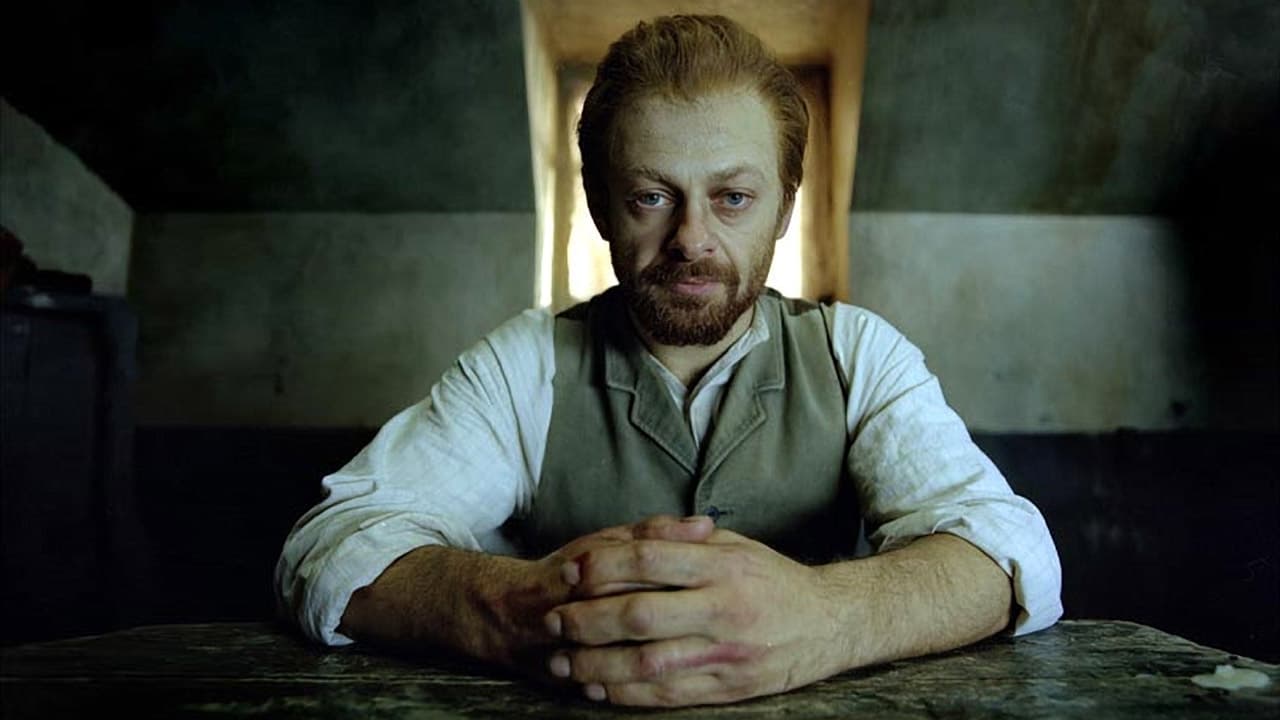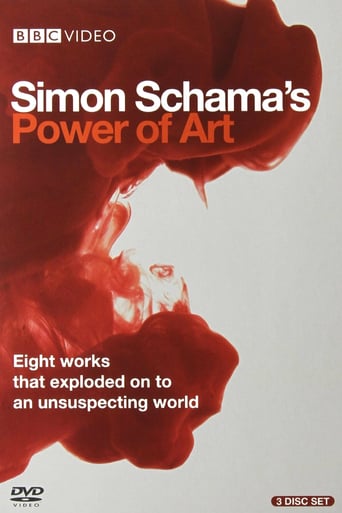Karry
Best movie of this year hands down!
Linbeymusol
Wonderful character development!
MoPoshy
Absolutely brilliant
Billie Morin
This movie feels like it was made purely to piss off people who want good shows
JustaGuy94134
Highly recommended if you are not an art expert and want an entertaining introduction. These are not dull descriptions of piece after piece and esoteric opinions and pontificating. Schama attempts to liven things up and to set context by describing the artist and their environment as well as the art. He also tends to focus on a small number of pieces, which I think is a good idea. If he tried to cover the entirety of Picasso's or Van Gogh's work in an hour he'd put us to sleep. If you are someone highly educated on art, these are NOT for you. And judging from a couple of the reviews, some people have a serious problem with the erotic descriptions in the Bernini show...guess they don't like the association with the Roman Catholic church or something. I would ignore them. Worth your time, especially if you are trying to get someone interested in art without boring the ___ out of them.
blob blobblob
If Mr. Schama spoke any more slowly, more painstakingly divided his syllables, I might not recognize the language he speaks in.More importantly, the writers and directors of pieces like this should recall what information is available at almost every viewer's fingertips. One can access a summary of most documentary subjects literally within a few minutes. I tested this hypothesis with the hour long piece on Turner. In a few keystrokes, I was able to find two summaries on the web that included most of the data Schama presents. Perhaps ten, 15 percent of what Schama tells or shows us remained harder to find, and what consisted of original analysis was nearly absent.And what is the purpose of the cinema-like shots that suggest some sort of hint toward reenactments? There is often little rhyme or reason to when or why they occur. They last a second or two and seem selected based on their potential for filler and gloss. At one point, we see a hand in shallow focus scraping at a canvas. This is supposed to help us imagine Turner doing his work as a painter? Gimme a break.Watching something like this is nearly a waste of time. I suppose you could turn down the volume and imagine your own narration. Better still, go to a museum or library instead. At least you'll get off your couch.
dromasca
If there is such a thing as popular science probably the best name one can give to the genre this series belongs to is popular art. Simon Schama's series of commentary on eight masters and their masterpieces in the history of art have a uniting theme - how art can influenced by power and how power influences art - but yet seems to address mostly the non-initiated audience. The language of the series is sometimes the one of an specialist but no deep aesthetic lessons are given, and the central thread of the commentaries in most of the episodes is around the anectdotic explanation of the works, combined with actors rendering the central figures, in many cases with a very thick palette to use a plastic arts term.The best moments of the series are in my opinion when the commentary raises atop the banal to create a real and veridical connection between works and times as in the episode about Picasso, or when the camera work of the director fits well the painters style as in the Van Gogh's episode. Yet some contemporary hints could have been avoided in the first, and the acted scene of Van Gogh's folly from the second. Schama is eloquent and catches the attention. Each episode in itself seems to have its better and its worse moments. As such series build in time, eight episodes may not be enough for a definitive conclusion, and the overall impression can improve if further artists and masterpieces will be explored in follow-up seasons.
kaaber-2
Schama's series is highly watchable, and I enjoyed his History of Britain as well, but I must vehemently protest to his Bernini episode, which is, admittedly, visually rich, masterly filmed - but Schama makes the unforgivable mistake of basing his biographical material (which takes up half of the episode) on 17th century muckraker Filippo Baldinucci. Baldinucci, who aspired to be another Vasari, generously lent his ear to all the most envious gossip about the artist, and he went out of his way to be spectacular. Thus, we are treated to the disgraceful story of a megalomaniac Bernini whose genius went to his head, who nearly killed his own brother in a jealous rage, and arranged for a bravo to slash the face of Costanza Bonarelli, Bernini's unfaithful mistress, to ribbons, as Schama so vividly puts it. A Bernini whom even his own mother detested. All of this, however, is based on Baldinucci's low-minded attempt to vilify Bernini, and is written, not as Schama seems to suggest, by a biographer who closely followed his subject around in Rome, but by a biographer who was two years old at the time of the Bonarelli scandal related in so vivid details, and Baldinucci's scandalous book was not published until two years after Bernini's death - for very good reasons. It is totally inadmissible. Even the unsympathetic Pope Innocent X was forced to exclaim: "They say bad things about Bernini, but he is a great and rare man". Man - not only artist. For a truthful biography on Bernini, we must go to Howard Hibbard (who carefully gleans from Baldinucci all that is trustworthy). Among the despicable features of Bernini, Schama & Baldinucci report that he never credited his co-workers - the people doing the hard work for the artist - but which artist did? Michelangelo? Rembrandt? Da Vinci? Certainly not. An art historian like Schama should know that the artist was always turned into a brand name, and never laid claim to wield the chisel or the brush himself. It's a shame about Schama's episode, for his treatment of Bernini as an artist is admirable, and I do agree that Bernini - as Schama says - transcended dualism and deliberately put erotic aspects into his portraits of saints, simply to show a transport that people can relate to. But the biographical yellow press diatribe of the program, collected with immoderate glee from fishwife Baldinucci - really, historian Simon Schama ought to know better!

